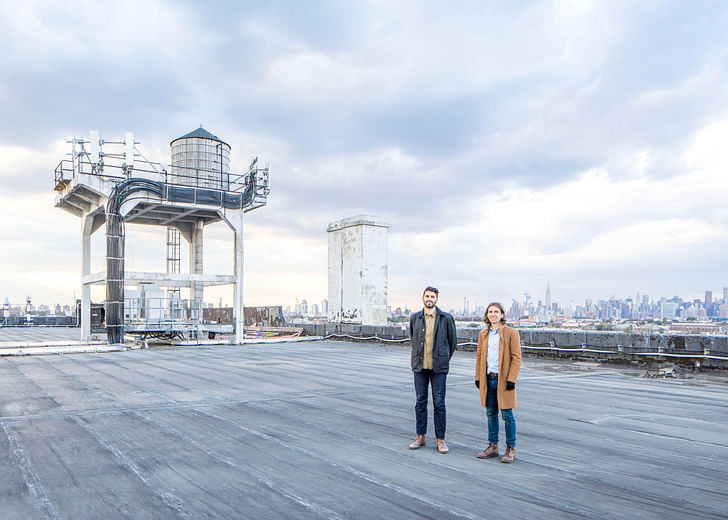

In 2016, the Storefront for Art and Architecture held an unusual design competition asking architects to compete for the most creative way to tear down a building. The brief had come out of a prior competition, the New York non-profit's 'Competition of Competitions', in which David Bench and Jonathan Chesley proposed the idea for a dream-up demolition competition.
At the time, the two were beginning to form their own studio, born out of lunchtime chatter with one another in Union Square Park. Now, the New York-based INC_A (which stands for 'It’s Not Corporate Architecture') is busy growing as a design firm, working on a number of public and semi-public projects. For this week's Studio Snapshot, we talk with Bench and Chesley about their radical proposals and many evolutions as a practice.
How many people are in the practice?
4 or 5 depending on who you ask
How did the two of you guys meet, decide to team up and start your own practice?
We met eating lunch together in Union Square park. It's quite busy in the spring, summer, and fall (when the weather is 'good'!) and we were the only people to brave the cold and rain through the winter. We discussed architectural concepts to keep our minds off the weather, and during our time on the park bench, became regular guests on a Japanese news program among other happenings. We decided to work together when the time was right.
What is the idea behind the practice's name?
We chose a name that spoke to our vision of a larger collaboration, where people can slip in and out over time; they can share our resources to realize a project and together, make a shared work. In that spirit, we feel that being framed by what we are not, rather than what we are, allows us the room to collectively change and re-define our practice.
We call ourselves ‘Not Corporate’ in opposition to the largest legislative victory of the current administration—a tax cut for corporations and the wealthy when inequality, housing costs, health care access, and crumbling infrastructure are the real issues that need to be tackled.
What hurdles have you come across?
We are doing almost exclusively public or semi-public projects—they are very fulfilling but not very financially lucrative compared to high-end residential work! So far we've avoided that as a trap we see many talented architects get stuck in.
The other thing, is time is a precious resource. We are constantly navigating how to juggle spending time on design iterations, business development, networking, and time with family and friends.
Can you talk a bit about the 'Taking Buildings Down' competition and how the ideas presented there may carry in the work that the firm has done since?
We believe that, practically or not, design has become too biased towards the act of addition, possibly as a reflection of our consumer culture. There is a sort of stigma against demolition that is probably the long-running aftermath of many horrible urban interventions under the guise of urban renewal. Our goal with the competition was to reset the balance of the conversation.
The thought-process behind the competition is present in our work as we work with many existing structures in NYC. We always have to consider this balance: What do we keep? What do we restore? What do we remove? And, what do we add? We're currently trying to figure out how to make surgical cuts in a 100k sf loft building in Bushwick, Brooklyn to create dynamic relationships across floors.
What are the benefits of having your own practice? And staying small?
Not having a boss!; There are a countless benefits to this. Staying small is not necessarily a choice, just the state of our current situation. We're a growing baby, in the infantile stage. We can't wait for adolescence...
4 Comments
Looks very corporate!
"Depending on who you ask"? Are people not aware of whether they work for you or not?
“...where people can slip in and out over time; they can share our resources to realize a project and together, make a shared work.”
I really like this part. A lot of people would love the opportunity to come in and collaborate with a great group of people but then have the option to explore other opportunities. Not being “tied down” to the “corporate giant” per se.
Cool concept. And seems sustainable as a business in terms of overhead and other factors.
Thanks. I should read more thoroughly.
Block this user
Are you sure you want to block this user and hide all related comments throughout the site?
Archinect
This is your first comment on Archinect. Your comment will be visible once approved.